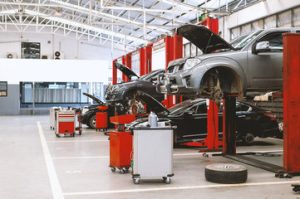The automotive industry continues to grow as vehicles become increasingly essential in everyday life. With more cars on the road than ever, the demand for skilled automotive repair and mechanic professionals is consistently strong. For those with a passion for vehicles and a talent for hands-on work, a career in automotive repair offers stability, growth, and the opportunity to solve real-world problems.
Starting a career in this field requires more than just an interest in cars. It demands technical training, problem-solving skills, and a commitment to continual learning as vehicle technology evolves. This guide outlines the essential steps to launch a successful career in automotive repair and mechanic services.

Understand the Role and Responsibilities
Before diving into the career path, it’s important to understand what automotive mechanics do. A typical workday may involve diagnosing vehicle problems, repairing or replacing parts, performing regular maintenance, and using specialized tools and diagnostic equipment.
Mechanics may work with a variety of vehicles, including cars, trucks, SUVs, and sometimes motorcycles. Depending on your area of focus, you might handle general repairs or specialize in systems like brakes, transmissions, electrical components, or air conditioning.
Mechanics are also responsible for test-driving vehicles after repairs, communicating with clients, and maintaining accurate records. Strong attention to detail and customer service skills are important in this field.
Assess Your Skills and Interests
Success in automotive repair starts with a natural curiosity about how things work and a willingness to work with your hands. Useful traits include:
- Problem-solving abilities
- Mechanical aptitude
- Patience and precision
- Good communication
- Physical stamina
If you enjoy troubleshooting mechanical systems and get satisfaction from seeing a vehicle back in working order, this field may be a perfect fit.
Obtain the Necessary Education
While some mechanics learn on the job, most employers prefer candidates who have completed formal training. A high school diploma or equivalent is typically the first requirement. From there, consider enrolling in a technical or vocational program that offers instruction in automotive repair.
These programs often include both classroom learning and hands-on shop experience, covering essential topics such as:
- Engine repair and diagnostics
- Brake systems
- Suspension and steering
- Electrical systems
- HVAC systems
- Safety protocols
Completing a formal training program can make you more competitive in the job market and may reduce the amount of time required for on-the-job training.
Get Certified or Licensed
While certification is not always required, it can greatly enhance your credibility and job prospects. Certifications demonstrate that you meet industry standards and are committed to your profession. Different certifications are available for specific systems and specialties, and most require passing a series of written exams and having a certain amount of work experience.
In some regions, certain types of work—such as emissions testing or air conditioning repair—may require additional licenses or specialized training.
Gain Practical Experience
Like many technical careers, experience is essential in automotive repair. Entry-level positions, such as a technician’s assistant, shop helper, or apprentice, provide an excellent way to get started. These roles allow you to learn directly from experienced mechanics while building your skills and confidence.
During this time, you’ll become familiar with diagnostic tools, repair procedures, and customer interactions. You’ll also get a better understanding of how a shop operates, from managing parts inventory to handling service requests.
Working under an experienced mentor can also help you identify which areas of automotive repair you’d like to specialize in.
Choose a Specialization (Optional)
As you gain experience, you may find certain areas of automotive repair particularly interesting or rewarding. Specializing can increase your value in the job market and open up more advanced opportunities.
Common specializations include:
- Engine performance and repair
- Electrical and electronic systems
- Brake and suspension systems
- Transmission work
- Diesel engine repair
- Hybrid or electric vehicle systems
Specialists often command higher salaries and may be eligible for additional certifications and roles.
Continue Learning and Stay Updated
Vehicle technology is constantly changing, with new advancements in fuel systems, electronics, autonomous features, and hybrid technology. To stay relevant and effective in your role, you’ll need to commit to ongoing learning.
This can include attending workshops, enrolling in refresher courses, or studying the latest technical manuals. Staying up to date helps you work efficiently and ensures you can handle new vehicle models and systems with confidence.
Explore Career Growth Opportunities
A career in automotive repair can lead to several advancement paths. With experience and additional training, you could move into roles such as:
- Lead technician or shop supervisor
- Service manager
- Technical instructor or trainer
- Independent shop owner
- Inspector or vehicle evaluator
Some professionals choose to open their repair businesses or specialize in mobile repair services, diagnostics, or performance tuning.
Starting a career in automotive repair and mechanic services can be a fulfilling journey for those who enjoy working with their hands and solving mechanical challenges. The path involves education, certification, practical experience, and a willingness to keep learning as technology evolves.
With strong demand, job stability, and a wide range of specializations, this career offers more than just a paycheck—it provides an opportunity to build expertise, help others, and take pride in the quality of your work. Whether you’re just beginning your professional life or considering a career change, the automotive repair industry has much to offer for dedicated and skilled individuals.